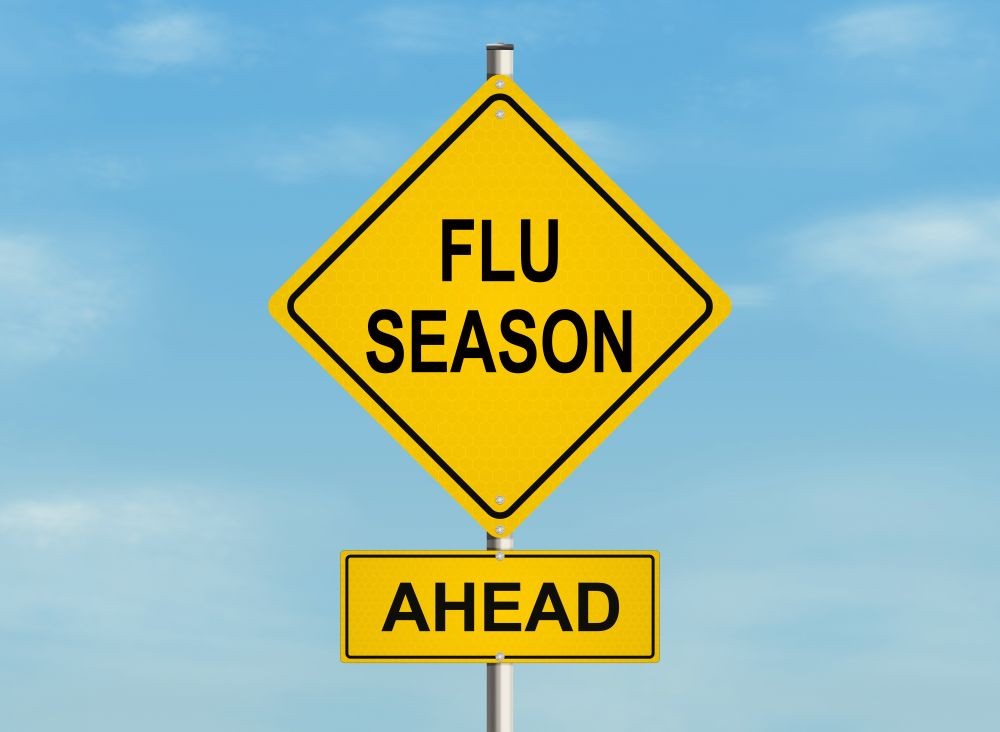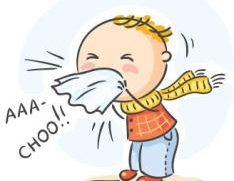Flu Prevention and Safety
It has been an especially bad year for respiratory infections, especially influenza, and many of our students have been ill. We are working hard here at school to encourage healthy practices and a clean environment, but we need help from families as well. There are a few things families can do to help prevent spread of these viruses.
Flu signs and symptoms usually come on suddenly. We thank you for keeping your child home if they experience any flu-like symptoms. Students are not permitted to return to school unless they are symptom-free for 24 hours. In some cases, parents may be asked to provide a doctor’s note before their child will be permitted to return to school. Students experiencing flu-like symptoms will be sent home from school immediately.
STAY HOME IF SICK
Please have your child stay home if they are ill. These signs and symptoms include:
fever over 100˚F (38˚C) For many adults and teens, a sudden high fever is the earliest symptom of the infection.
muscle aches
fatigue
loss of appetite
chills
vomiting
headache
stuffy nose
Remain home until at least 24 hours after the fever or fever symptoms (chills, feeling very warm, flushed appearance, or sweating) resolve without fever reducing medicine such as Tylenol or Motrin.
You and your child can shed influenza for up to 5-7 days, so an extra day or two home is also encouraged if you are known to have influenza.
Children who have been vaccinated for influenza do not generally develop symptoms as severe as others, so may only have low grade fever or mild cough and it could still be influenza.
Although most people will recover fully without complications, antiviral treatment may be helpful if given in the first 48 hours of illness. This can prevent serious complications and shorten duration of illness. Contact your healthcare provider to discuss this if you or your child are sick.
WAYS TO PREVENT INFLUENZA
Help us with health habits to prevent spread of illness:
We encourage everyone to get a yearly influenza vaccine. It is not too late if you have not received one. Even if you get the flu, your symptoms will be less severe and shorter in duration thus helping the spread of influenza.
Even if you get influenza, you should still receive vaccine as there are several strains circulating.
Students and staff should cover coughs and sneezes with a tissue or their bent arm.
Put the used tissue in a trash can and wash their hands right away.
Students should avoid touching their eyes, nose or mouth.
We will provide supplies that are easily accessible for everyone.
Luckily influenza does not live on surfaces more than 24-48 hours, but enhanced cleaning measures in classrooms are being implemented. Influenza will respond to any general cleaning method at home as well. Soap and water or products such as Lysol are effective.
SOME KIDS ARE AT ESPECIALLY HIGH RISK FOR INFLUENZA
These children may need antiviral prophylaxis if they have a known influenza exposure. If your child falls in one of these categories, please contact their healthcare provider if there has been an exposure in the classroom.
Children younger than 6 months old
Children aged 6 months up to their 5th birthday (especially those less than 2)
American Indian and Alaskan Native children
Pregnant women are at very high risk for complications. Please contact your Obstetrician if you or a family member/close contact are ill.
Children aged 6 months old through 18 years old with chronic health problems including asthma.
Children who are taking aspirin or salicylate-containing medicines.
Extreme obesity, which has been associated with severe flu illness in some studies of adults, may also be a risk factor for children. Childhood obesity is defined as a body mass index (BMI) at or above the 95th percentile, for age and sex.
Here is a link to the parent information from the CDC website:
The Flu: A Guide for Parents
Thank you for reading this guidance and helping us keep our school healthy! Let us know if there are questions.
